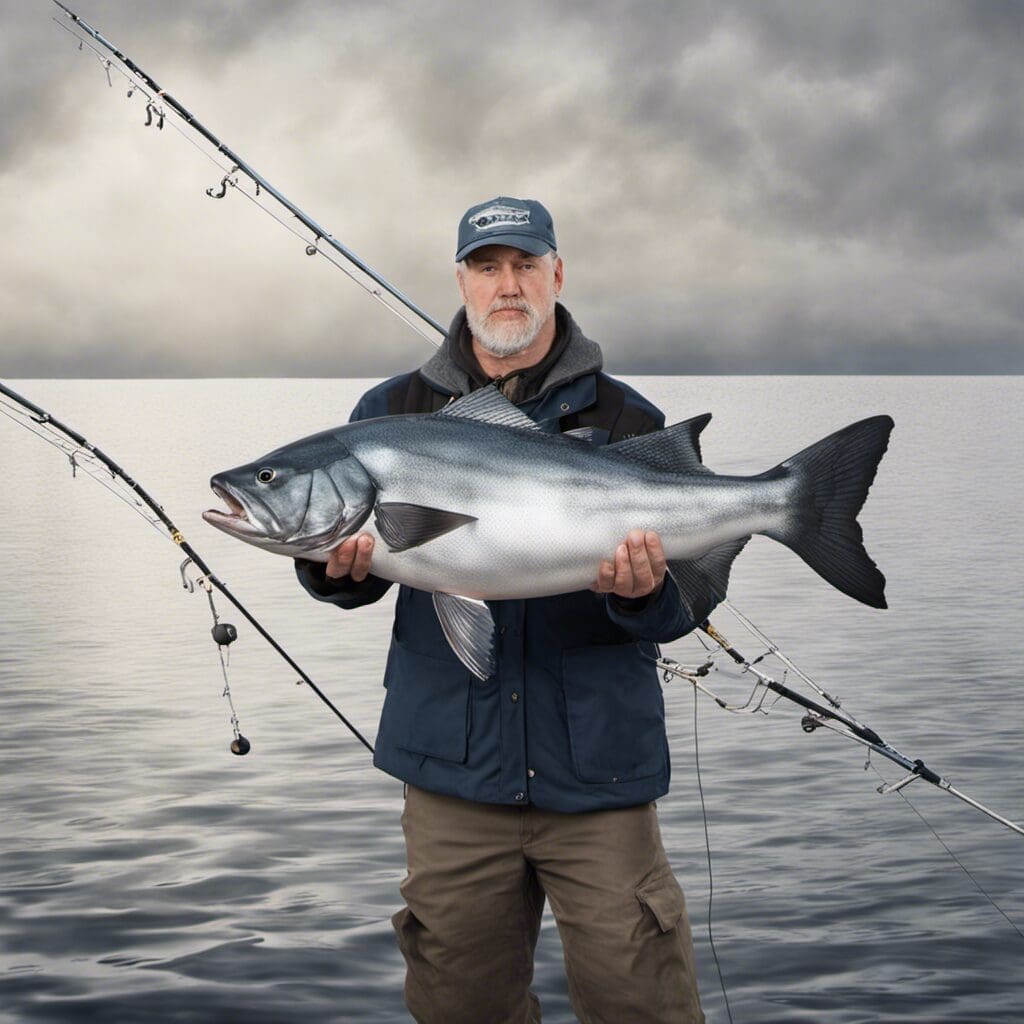Introduction
The Bluenose Warehou (Hyperoglyphe antarctica), also known as bluenose, is a commercially important deepwater fish species. It belongs to the Centrolophidae family, commonly known as medusafishes or barrelfishes.
Conservation Status
Bluenose Warehou is currently classified as ‘Least Concern’ according to the International Union for Conservation of Nature (IUCN) Red List of Threatened Species due to its wide distribution and large population. Conservation efforts are focused on minimizing overfishing by implementing catch limits and ensuring sustainable fishing practices.
Statistics
| Characteristic | Average | Range |
|---|---|---|
| Length | 60 cm | 35 – 130 cm |
| Weight | 4.5 kg | 1.3 – 12 kg |
| Lifespan | 17 years | 8 – 25 years |
Distribution
Bluenose Warehous are widely distributed throughout the Southern Hemisphere. They are primarily found around New Zealand, southern Australia, and the southwest Pacific Ocean. These fish do not follow specific migration patterns but are known to change depths according to feeding patterns.
Habitats
Bluenose Warehous favor deep, cold water environments. They typically inhabit depths between 200 to 800 meters, with temperatures ranging between 7.8 and 14.8 °C.
When and Where to See
Bluenose Warehous are usually found year-round but are more abundant during the summer months. They are most active at night when they rise to mid-water depths to feed.
Best Fishing Locations
Top fishing spots for Bluenose Warehou include:
- Banks Peninsula, New Zealand
- Fiordland, New Zealand
- North Island, New Zealand
- Chatham Rise, New Zealand
- South Australia
- Tasmania, Australia
- Victoria, Australia
When fishing for Bluenose Warehou, look for steep, rocky areas in deep water as they prefer such environments.
How to Catch
The most effective method for catching Bluenose Warehou is bottom fishing with bait such as squid or fish. The best times to fish for these species are during the night and in the summer when they are most abundant.
Identification Guide
Bluenose Warehous are identifiable by their elongated, compressed bodies which are blue-grey on top and silver underneath. They have a long snout, small mouth and relatively large eyes. They also have a distinctive first dorsal fin, nearly as high as the body is deep.
Culinary Information
Bluenose Warehou is prized for its firm, white flesh and mild taste. It is high in omega-3 fatty acids, low in fat, and offers a good source of protein. It is commonly used in a range of dishes, including baking, grilling, and steaming. Try it in a classic fish and chips dish or savour it in a seafood chowder.
Additional Information
Bluenose Warehous feed primarily on crustaceans, fishes, and squids. They are preyed upon by larger fish species and are susceptible to overfishing by commercial fisheries.
In Maori culture, Bluenose Warehou is known as “Warehou” and is traditionally used in various dishes.
References and Further Reading
For more information on Bluenose Warehou, please refer to the following sources:
New Zealand Fisheries
Australian Museum
FishBase

